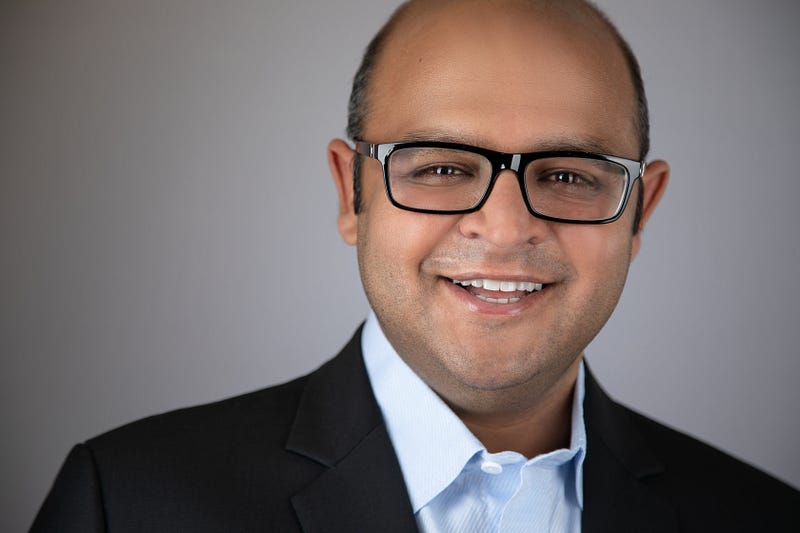What do home climate control and missile defense systems have in common?
A lot.
This is what my friend Dip Patel discovered in circa 2012 when he founded his first company Ecovent.
Ecovent is the only intelligent home zoning system that delivers complete room-by-room climate control through easy-to-install, self-configuring sensors and vents.
We’ve all experienced it.
One room in the house is freezing cold, and another is a furnace. This is a problem that over 90% of the homeowners in America experience. Most homes have one central HVAC system and one thermostat. Dip developed a centralized sensor network (“CSN”) that measures the temperature, pressure, and humidity in every room to create an x-ray of your home.
He bootstrapped this company for nearly a year before he was accepted into Techstars in 2014.
Then, he and his founding team went on to create what has been hailed as the holy grail of comfort by “Ask This Old House.”
For the next five years, Dip went on to ride an incredible roller coaster while at the helm of Ecovent.
(He is one of the smartest people I know, but very humble. We met three years ago at Boston’s best CEO forum. He was going through some tough challenges in his venture, and we built a great friendship. We are now part of the same team working on a new (ad)venture that aims to reshape the future of renewable energy.)
Dip learned a great deal while creating, growing, and ultimately selling his business. That learning is probably the most significant gift of entrepreneurship.
He now shares that gift in a course he teaches at MIT filled with some of the country’s top aspiring entrepreneurs.
Recently, I asked him to share some of those learnings with me (and you).

How were you introduced to entrepreneurship?
DP: I consider myself to be very fortunate, especially when it comes to experiences and lessons that have helped shape my career. After undergrad, I entered the workforce and began an awesome career with Lockheed Martin. As a result of some amazing people, this is also where I found a passion for entrepreneurship.
I then went onto Sloan, MIT’s School of Management, and everything changed. I remember when I left Lockheed, a mentor asked me, “How can entrepreneurship be taught?” I honestly had no idea, but if any place could help me figure it out, it would be MIT.
How have your entrepreneurial experiences informed your teaching?
DP: After grad school, I started my own company. With Ecovent, I was successful at building a team, product, and market segment. Before my company was sold, my life always had a clear plan — from high school and college to my first career and grad school to finally starting a company. Then, almost without notice, my path was not clear. The uncertainty was overwhelming and scary.
Opportunely, I was able to go back to MIT and serve as an Entrepreneur in Residence (EIR). I got to work on some of my own ideas while holding office hours for a day or two each week to advise up and comers who had the same drive as I do. This eventually translated into a teaching gig. I now co-teach a great course focused on advanced entrepreneurship concepts. I’m also a mentor to startups at Techstars and other accelerators.
Since starting my own company, I’ve seen 100’s of startups — some succeed and some crash and burn. Whether it be as an advisor, a friend, or just purely as a spectator, what I’ve learned from watching these companies certainly surprised me and may surprise you.
What should founders and CEO’s know about what you’ve learned?
DP: There are some common misconceptions every startup should pay attention to.
- Entrepreneurship is a career: Embrace the chaos. Entrepreneurship requires specific muscles and skills that can be taught. In addition, it has fundamental characteristics that may or may not be a good fit for who you are as a person, and for what type of environment you thrive in. The main themes I’ve seen are: A) you have to love chaos; B) you need to be an extremely fast learner; C) you have to go all-in and be willing to risk everything.
- Get your hands dirty: You’re brilliant, but you still need to take out the trash. The key to being a successful entrepreneur is being scrappy and getting your hands dirty. At a large company, you have tons of resources, so a brilliant engineer can focus only on engineering. As a founder, you need to have your eyes on everything, and be willing to do anything, including clean the toilets and take out the garbage. Seriously!
- Have a great team: You can’t be the best at everything, but you’ll need to surround yourself with the best. When I started Ecovent, I knew that I was strong in some things (product, sales, engineering) but weak in others (finance, accounting, manufacturing). Instead of trying to master all of these new skills, MIT taught me to embrace my strengths, amplify them, and find teammates who have complementary strengths that would make up for my weaknesses. Building a company with a homogeneous team is a recipe for disaster. If you all think the same, you are unlikely to see the blind spots!
- Start with the problem: The technology or idea is rarely where the risks are. So many new founders place undue focus on the idea or the HOW. In fact, many start with a new technology! Seeking a problem for existing technology is a recipe for disaster. The right way to start a company is to identify a problem that already exists, and is a pandemic. Then interview lots of people who have this same problem to validate that it really is, in fact, a problem. Once you’ve done that, you can start thinking about and building the technology. Too often, people start with a shiny idea first.

What would you say to someone hesitant to take a leap into startup land?
DP: You have the skills, I promise. The trick is figuring out if entrepreneurship is the right career path for you, and if so, at what stage.
For instance, you might decide to join a startup that is at a later stage with plenty of room to grow. An example of that is a company called bevi.co.They make machines that deliver “customer beverages at your fingertips.” Or, you can just take an idea as I did and start the journey from scratch.
Either way, recruit a fantastic team because that’s the keystone to making any venture successful.
And, remember that having cool tech isn’t enough. What’s more important is the problem you’re trying to solve — The WHY rather than the HOW.
The best way to find out if entrepreneurship is the right career path for you is to just do it! Take a risk, give it a shot. See if it jives, if it does, awesome! If not, also awesome! You will have learned a ton to help yourself navigate your career, going forward, and life in general.
It’s not a lonely journey. Entrepreneurs are some of the most collaborative, empathetic, and supportive people I’ve ever met! There’s a camaraderie around being so crazy as to start something new.
Summary
Entrepreneurship is about looking at the world and finding opportunities to create something new.
Entrepreneurs are people who are thinkers and doers. As Steve Jobs put it, “The doers are the major thinkers. The people that really create the things that change [the world] are both the thinker and doer in one person.”
Thinking is the “Why.” Doing is the “How.”
The biggest misconception is that there is a hard and fast rule about when you know are ready to be an entrepreneur.
The truth is when you have the combination of these two (thinking and doing) inside you — whether you believe it or not — you are an entrepreneur.
So, don’t doubt yourself. Just do what Dip did, and go for it.
And, be ready to be addicted.



